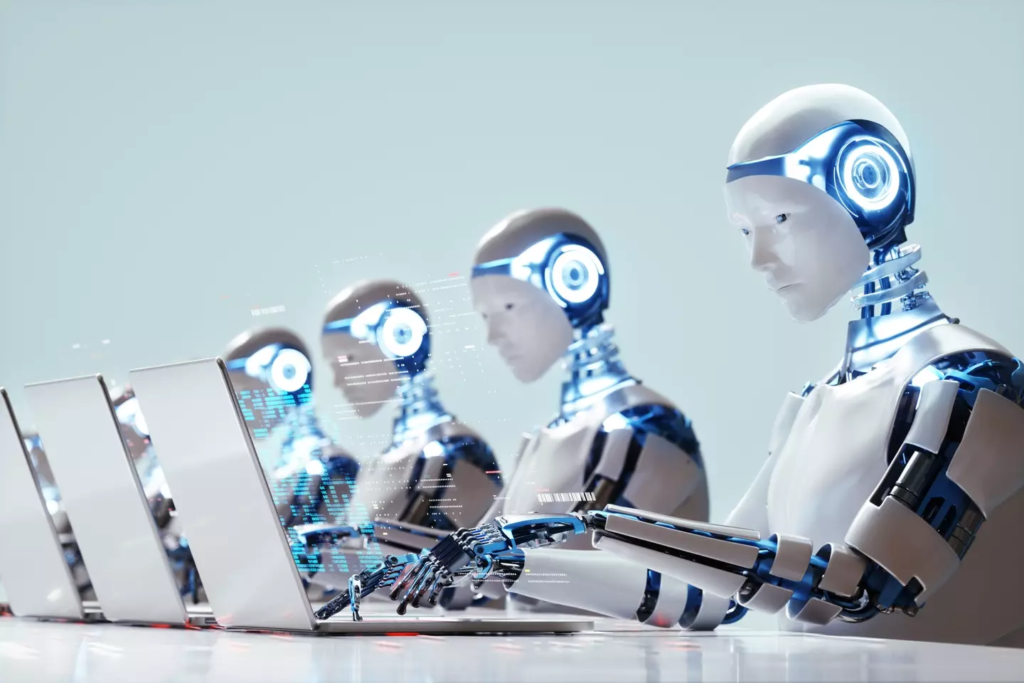How One Man Used AI to Apply to 1,000 Jobs While Sleeping—and What Happened Next

The Evolution of Job Searching with AI
In today’s fast-paced world, job seekers are constantly looking for ways to optimize their job search. One individual, in a bold and creative move, utilized artificial intelligence (AI) to revolutionize his job application process. The result? Over 50 interviews and a drastic reduction in the amount of time spent on each application. And the best part? This AI bot worked while he was sleeping, making the process even more efficient.
The AI Bot: Changing the Job Search Game
The Reddit user, who shared his experience on the r/GetEmployed subreddit, had a unique approach to job hunting. Instead of manually tailoring resumes and cover letters, he created an AI bot designed to automate the entire process. The AI bot was tasked with analyzing job descriptions, generating customized resumes, creating tailored cover letters, and even applying for positions that matched his qualifications—all while he was asleep!

According to the user, the bot’s main functions included:
- Analyzing candidate information: The bot would examine the user’s qualifications and match them to job descriptions.
- Generating customized resumes and cover letters: The AI bot would craft personalized application materials based on the specific job requirements.
- Answering recruiter questions: The bot could even tackle questions that employers asked during the recruitment process.
- Automating job applications: It applied to suitable jobs, maximizing the user’s chances of landing an interview.
In just one month, the AI-assisted job search strategy led to over 50 interview invitations. The key to the bot’s success? It generated tailored documents that catered specifically to each job posting, increasing the likelihood of passing through automated screening systems.
The AI Advantage: A Look at Automated Job Applications
In recent years, many companies have integrated AI-powered applicant tracking systems (ATS) to help streamline their recruitment processes. These systems are designed to sift through hundreds, if not thousands, of resumes and applications. They scan for keywords and qualifications, ensuring that the most relevant candidates rise to the top of the list.
However, getting through these systems is no easy feat. If your resume doesn’t contain the right keywords or match the required qualifications, it’s likely to be rejected before it even reaches a hiring manager. This is where the AI bot comes in. By analyzing job descriptions, it ensures that each resume and cover letter aligns perfectly with the needs of the position, giving the user a much higher chance of being noticed.
For a deeper understanding of how AI is revolutionizing the hiring process, check out this insightful article by Forbes.
Efficiency vs. Ethical Concerns: Is It Fair to Use AI?
While the results were impressive, the user didn’t shy away from acknowledging the ethical concerns surrounding the use of AI in the job search process. There are several questions that arise when automation plays a significant role in something as personal as applying for jobs.

The user reflected on the ethical dilemma: “As we seek to optimize the selection process, we risk losing the human element that often makes a difference in a work environment.” This comment brings to light an important debate: Is using AI to apply for jobs fair or is it undermining the authenticity of the application process? While AI can certainly make the process more efficient, it also raises concerns about the human touch in hiring.
For instance, job interviews and personalized communications help companies assess a candidate’s cultural fit and interpersonal skills—factors that are hard to gauge through automated applications. If AI begins to dominate the entire hiring process, could it lead to a lack of genuine interaction, and ultimately, an impersonal work environment?
Navigating the Paradox: Efficiency vs. Human Connection
The introduction of AI into recruitment brings up the fundamental paradox of efficiency vs. human connection. On one hand, AI helps job seekers like the Reddit user apply for multiple roles with minimal effort. But on the other hand, it can diminish the personalized nature of the hiring process. As we rely more on automated systems, we may lose the nuances of human judgment that often determine whether a candidate will thrive in a specific role or workplace culture.
As AI continues to evolve, finding a balance between automation and personal engagement will be crucial. For example, while AI can assist in screening resumes, human managers must still evaluate candidates for traits such as emotional intelligence, creativity, and adaptability—qualities that may not be easily assessed by machines. This raises the important question: How do we maintain the right balance between automation and human interaction in recruitment processes?
Social Media Reactions: Opinions on the AI Job Search Hack
This story sparked a lively debate on social media, with differing opinions on whether the Reddit user’s method was a clever hack or an ethically questionable shortcut. Some users praised the ingenuity and effectiveness of the AI bot, arguing that if companies are using AI to filter out candidates, then it’s only fair for job seekers to use the technology to their advantage.
However, others felt that using AI in this way undermines the authenticity of the job search process. They argued that the job application is meant to be a personal endeavor, one that allows candidates to showcase their skills, experiences, and passions. By relying on AI, candidates might miss out on the opportunity to present themselves as unique individuals.
This debate brings up an important point: as technology becomes more integrated into the hiring process, both job seekers and employers must be mindful of its implications on fairness, authenticity, and human connection. The future of recruitment may involve blending AI’s efficiency with the personal touch that has traditionally characterized the hiring process.
For more on the role of AI in recruitment and hiring, check out this New York Times article.
The Pros and Cons of AI in Recruitment: What You Need to Know
AI in recruitment offers numerous advantages, from speeding up the application process to increasing the chances of landing an interview. However, it’s not without its downsides. Below are some of the key pros and cons of using AI in the job search:
Pros:
- Efficiency: AI can process large volumes of applications in a fraction of the time it would take a human recruiter.
- Customizability: AI can tailor resumes and cover letters to match the exact requirements of each job posting, improving a candidate’s chances of passing through automated filters.
- Time-saving: Automating the application process frees up job seekers to focus on other important tasks, such as networking or preparing for interviews.
Cons:
- Lack of human touch: While AI is efficient, it can’t replace the nuanced understanding and emotional intelligence that human recruiters bring to the table.
- Potential for bias: AI algorithms are only as good as the data they are trained on. If biased data is used, AI systems can unintentionally favor certain groups of candidates over others.
- Over-reliance on technology: Relying too heavily on AI might lead to missed opportunities for genuine connections with potential employers.
Despite the potential pitfalls, it’s clear that AI will play an increasingly prominent role in recruitment. For job seekers, learning how to leverage this technology can give them a significant edge in a competitive job market.
Conclusion: Is AI in Job Applications Ethical?
The use of AI in job applications is a double-edged sword. On the one hand, it offers job seekers a valuable tool to streamline their application process, increase efficiency, and improve their chances of landing an interview. On the other hand, it raises important ethical questions about the role of human interaction in recruitment and whether AI-driven applications devalue the personal touch that’s often necessary to build strong working relationships.
As AI continues to evolve and become more integrated into the job application process, we will need to carefully consider its impact on both candidates and employers. Ultimately, the challenge will be to find a balance between efficiency and personal connection—ensuring that while technology helps optimize the process, it does not replace the human aspects that make work meaningful.







One Comment